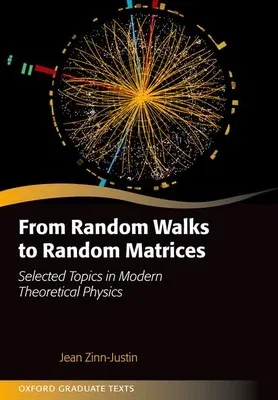Jean Zinn-Justin
(Author)From Random Walks to Random MatricesPaperback, 15 March 2022

Temporarily out of stock
Free Delivery
Cash on Delivery
15 Days
Free Returns
Secure Checkout

Part of Series
Oxford Graduate Texts
Print Length
544 pages
Language
English
Publisher
Oxford University Press, USA
Date Published
15 Mar 2022
ISBN-10
0192856960
ISBN-13
9780192856968
Description
Product Details
Author:
Book Format:
Paperback
Country of Origin:
GB
Date Published:
15 March 2022
Dimensions:
24.92 x
17.45 x
2.64 cm
ISBN-10:
0192856960
ISBN-13:
9780192856968
Language:
English
Pages:
544
Publisher:
Series:
Weight:
1075.01 gm